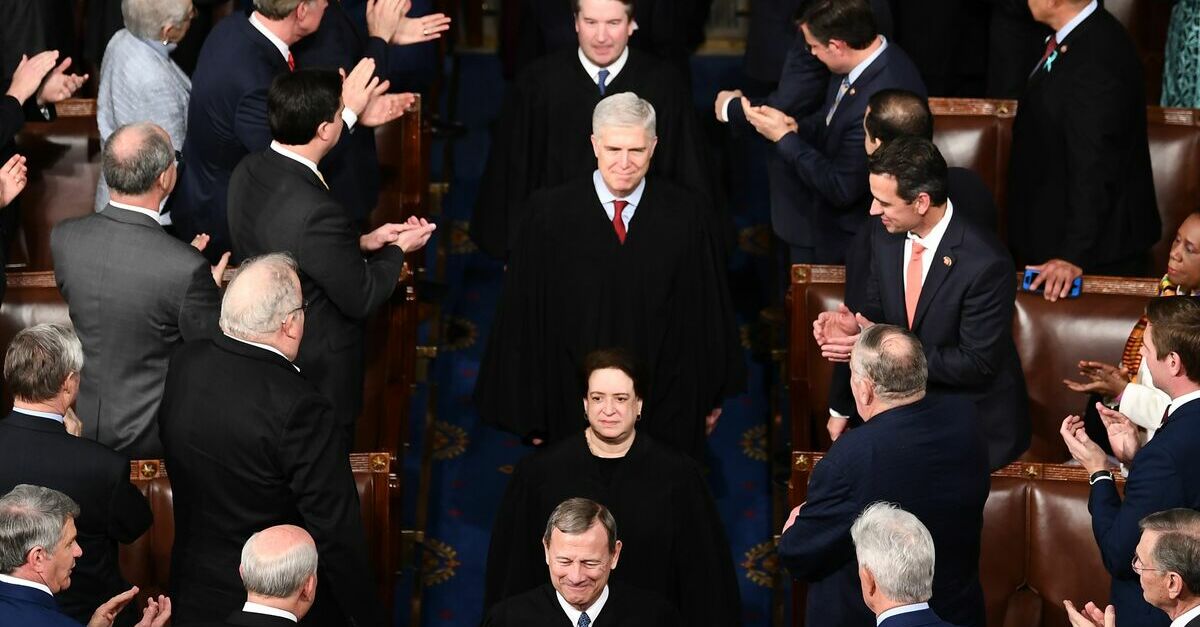
Republican lawmakers in Pennsylvania urged the U.S. Supreme Court on Tuesday to halt enforcement of ruling from the state Supreme Court that would extend the deadline for receiving and counting mail-in ballots for November’s presidential election.
The Pennsylvania Supreme Court ruled in favor of Democratic lawmakers last week in the key swing state, finding that mail-in ballots received within three days of Nov. 3 must be counted so long as the envelopes are postmarked by Nov. 3. Ballot envelopes received by Nov. 6 that are not postmarked at all will also be counted, unless a “preponderance of the evidence demonstrates that it was mailed after Election Day.”
In response, the State Senate Republican Caucus on Tuesday filed a legal brief seeking an emergency stay from the conservative majority U.S. Supreme Court pending the filing and outcome of a petition for a writ of certiorari. In other words, Republicans argue that the state court ruling “clearly violates federal law and the United States Constitution.” They want that ruling halted until they file a petition for SCOTUS to take up the case and until reaches a conclusion about said petition.
“By judicial fiat, that decision removed the principal method by which Pennsylvania structures its post-election process, permitting votes to be cast after Election Day and counted after Election Day,” the Republican lawmakers wrote. “By doing so, the decision creates multiple election days after November 3, 2020, in violation of federal law since votes can be cast (i.e. voted) after November 3, 2020. The decision also usurped the Pennsylvania General Assembly’s constitutionally-delegated authority to set the times, places, and manner of federal elections in Pennsylvania. This was done without any delegation of power to the state’s Supreme Court or legislative consideration whatsoever.”
The original Democratic challenge to Pennsylvania’s “burdensome” election laws was fashioned as a response to the resurgent pandemic and its relationship to the currently in-progress general election. Similarly, the Pennsylvania Supreme Court couched their opinion in reference to the “various challenges” posed by the pandemic and the concomitant upsurge in mail-in voting due to fears of contracting the deadly virus.
But Republicans accused Democrats of “forum shopping” in bringing the case in Pennsylvania, and asserted that the state Supreme Court ruling was an “outlier” among other states wrestling with the same mail-in ballot deadline issue.
“If this Court does not grant a stay, Respondents and their national allies will continue to forum shop by bringing even more challenges in state courts seeking to undermine otherwise legitimate policy determinations by state legislatures,” the brief stated. “In fact, the decision of the Supreme Court of Pennsylvania is an outlier because most state courts have refused to fundamentally alter state election law via judicial fiat under the guise of COVID-19.”
Generally, federal courts will abstain from intervening when state courts decide on a matter of state law, but the GOP lawmakers argued that the state’s legislature cannot be restrained by the state’s constitution when promulgating rules pertaining to a federal election.
“By delegating exclusive power to regulate the times of federal elections in each state to ‘the Legislature thereof,’ the [U.S.] Constitution necessarily denies that power to other state actors—absent a separate, affirmative grant of authority,” the brief stated. “Indeed, nothing in the Constitution’s text or structure suggests that a state legislature acting under the Elections Clause can be subject to a state constitution’s substantive provisions.”
Josh Douglas, a law professor at the University of Kentucky specializing in election law and voting rights, called the argument “quite a bold claim” that the U.S. Supreme Court “should reject.”
The Senate caucus immediately seeks to have the U.S. Supreme Court issue an injunction preventing the state Supreme Court ruling from taking effect.
Read the full legal brief below:
GOP Reply Brief in Support of Emergency Application Final by Law&Crime on Scribd
[Image via BRENDAN SMIALOWSKI/AFP via Getty Images]